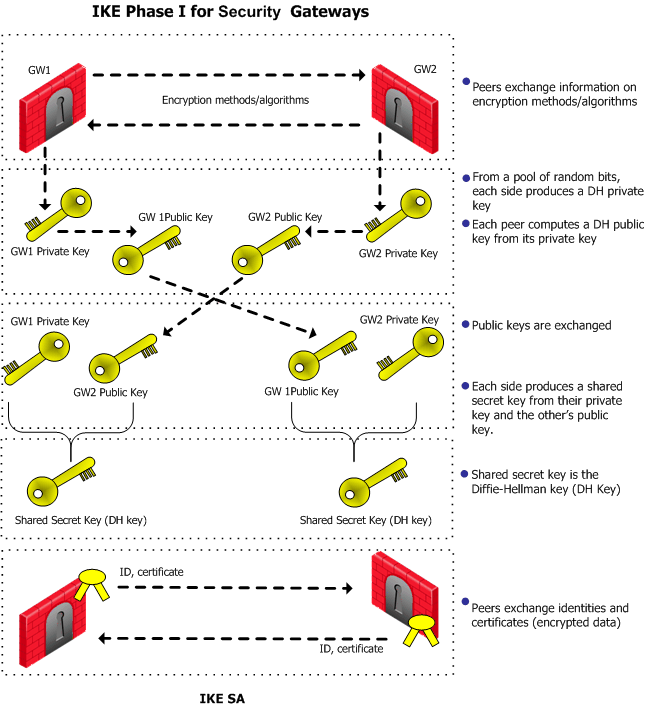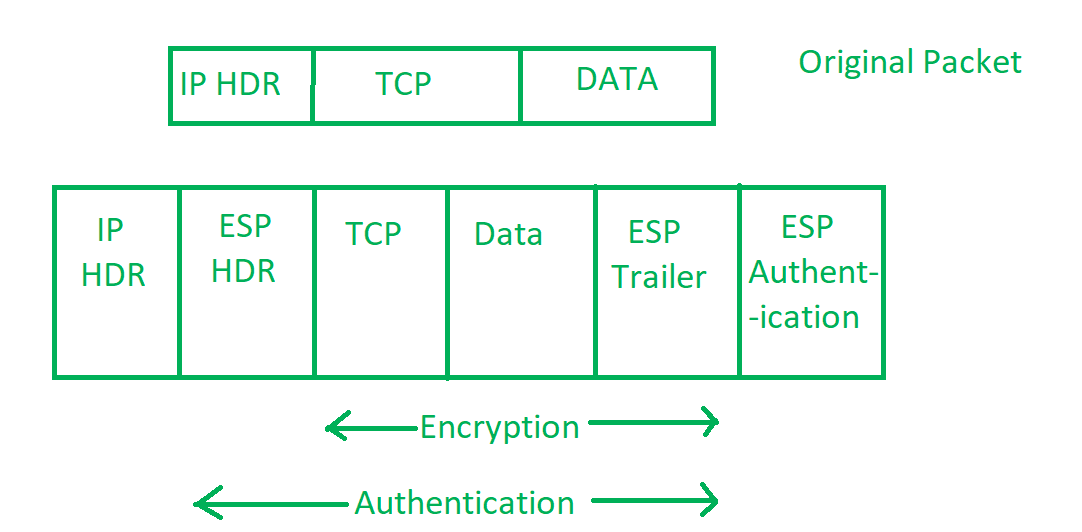Featured
Table of Contents
Ipsec (Internet Protocol Security) Vpn
These negotiations take two forms, primary and aggressive. The host system that begins the procedure suggests encryption and authentication algorithms and settlements continue till both systems decide on the accepted procedures. The host system that begins the procedure proposes its preferred encryption and authentication approaches however does not negotiate or alter its choices.
As soon as the information has been transferred or the session times out, the IPsec connection is closed. The private keys utilized for the transfer are deleted, and the process comes to an end.
IPsec uses 2 primary protocols to provide security services, the Authentication Header (AH) protocol and the Encapsulating Security Payload (ESP) procedure, in addition to several others. Not all of these procedures and algorithms need to be utilized the specific choice is identified during the Settlements phase. The Authentication Header protocol authenticates data origin and integrity and provides replay defense.
Ipsec Overview
A relied on certificate authority (CA) provides digital certificates to verify the interaction. This permits the host system getting the data to validate that the sender is who they declare to be. The Kerberos procedure supplies a central authentication service, permitting devices that utilize it to validate each other. Various IPsec implementations might utilize various authentication approaches, however the result is the exact same: the protected transfer of information.
The transport and tunnel IPsec modes have a number of crucial distinctions. Encryption is just used to the payload of the IP packet, with the original IP header left in plain text. Transport mode is generally utilized to offer end-to-end communication in between two devices. Transport mode is mainly used in situations where the two host systems communicating are trusted and have their own security procedures in location.
Encryption is used to both the payload and the IP header, and a brand-new IP header is contributed to the encrypted packet. Tunnel mode provides a protected connection between points, with the initial IP package wrapped inside a brand-new IP packet for additional defense. Tunnel mode can be used in cases where endpoints are not trusted or are lacking security mechanisms.
About Ipsec Vpn Negotiations
This implies that users on both networks can interact as if they were in the very same area. Client-to-site VPNs permit specific devices to link to a network remotely. With this option, a remote worker can run on the very same network as the rest of their team, even if they aren't in the very same area.
It ought to be noted that this approach is rarely used since it is hard to manage and scale. Whether you're utilizing a site-to-site VPN or a remote access VPN (client-to-site or client-to-client, for example) most IPsec geographies include both advantages and drawbacks. Let's take a better look at the benefits and drawbacks of an IPsec VPN.
An IPSec VPN offers robust network security by encrypting and validating information as it travels in between points on the network. An IPSec VPN is versatile and can be set up for various use cases, like site-to-site, client-to-site, and client-to-client. This makes it a good option for companies of all shapes and sizes.
Ipsec Troubleshooting And Most Common Errors


IPsec and SSL VPNs have one primary difference: the endpoint of each protocol. In many cases, an IPsec VPN lets a user connect from another location to a network and all its applications. On the other hand, an SSL VPN produces tunnels to specific apps and systems on a network. This restricts the methods which the SSL VPN can be used however reduces the probability of a jeopardized endpoint leading to a larger network breach.
For mac, OS (by means of the App Shop) and i, OS versions, Nord, VPN utilizes IKEv2/IPsec. This is a mix of the IPsec and Internet Secret Exchange version 2 (IKEv2) procedures.
Stay safe with the world's leading VPN.
Ipsec: The Complete Guide To How It Works ...
Before we take a dive into the tech stuff, it is necessary to see that IPsec has rather a history. It is interlinked with the origins of the Web and is the outcome of efforts to develop IP-layer file encryption methods in the early 90s. As an open protocol backed by constant development, it has actually proved its qualities over the years and despite the fact that opposition protocols such as Wireguard have occurred, IPsec keeps its position as the most commonly used VPN protocol together with Open, VPN.
As soon as the interaction is developed, IPSEC SA channels for secure information transfer are established in phase 2. Attributes of this one-way IPsec VPN tunnel, such as which cipher, method or secret will be utilized, were pre-agreed by both hosts (in case of IPsec VPN, this is a connection between a gateway and computer).
IPsec VPNs are commonly utilized for several factors such as: High speed, Really strong ciphers, High speed of developing the connection, Broad adoption by running systems, routers and other network gadgets, Obviously,. There are alternative options out there such as Open, VPN, Wireguard and others (see the list of vital VPN protocols on our blog).
Ipsec: A Comprehensive Guide - Techgenix
When establishing an IKEv2 connection, IPsec uses UDP/500 and UDP/4500 ports by default. By standard, the connection is established on UDP/500, but if it appears throughout the IKE establishment that the source/destination lags the NAT, the port is switched to UDP/4500 (for info about a technique called port forwarding, inspect the short article VPN Port Forwarding: Good or Bad?).
There are a number of distinctions in regards to innovation, usage, advantages, and downsides. to secure HTTPS traffic. The function of HTTPS is to safeguard the content of interaction in between the sender and recipient. This ensures that anybody who wishes to intercept communication will not have the ability to find usernames, passwords, banking information, or other sensitive data.
All this information can be seen and kept an eye on by the ISP, federal government, or misused by corporations and opponents. To get rid of such risks, IPsec VPN is a go-to option. IPsec VPN deals with a different network layer than SSL VPN. IPsec VPN operates on the network layer (L3) while SSL VPN operates on the application layer.
7 Common Vpn Protocols Explained And Compared

When security is the primary concern, contemporary cloud IPsec VPN must be picked over SSL considering that it secures all traffic from the host to the application/network/cloud. SSL VPN secures traffic from the web browser to the web server just. IPsec VPN safeguards any traffic between 2 points identified by IP addresses.
The issue of selecting between IPsec VPN vs SSL VPN is carefully related to the subject "Do You Required a VPN When A Lot Of Online Traffic Is Encrypted?" which we have actually covered in our recent blog. Some might think that VPNs are barely needed with the rise of inbuilt encryption straight in e-mail, browsers, applications and cloud storage.
Latest Posts
10 Best Business Vpn Services [2023]: A Comprehensive ...
Best Virtual Private Networks Reviews 2023
Best Vpns For Android - All About Cookies